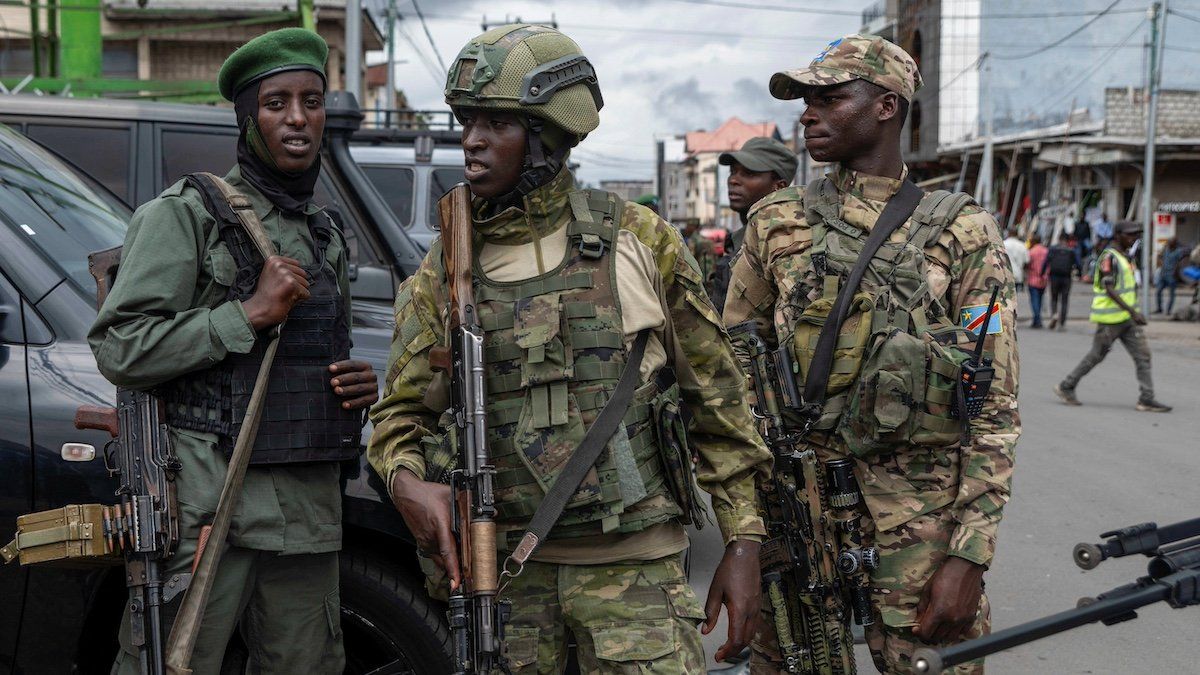The Democratic Republic of the Congo and an alliance of militias led by the notorious M23 rebels announced a ceasefire on Thursday after talks in Qatar and, after three years of violence, said they would work toward a permanent truce. Meanwhile, Congo will reportedly sign a broad declaration of principles on a minerals deal with Rwanda on Friday in Washington, DC. The UN, US, EU, and other governments accuse Rwanda of using M23 to control valuable mines in Congo, but Washington is in the midst of talks with Congo to secure access to those same minerals, for which a deal with Rwanda is a necessary first step.
M23 recently seized the two principal cities in northeastern Congo, Goma, and Bukavu. At least six previous ceasefires in the long-running conflict have failed, turning hundreds of thousands of people into refugees and exposing them to violence, hunger, lack of shelter, and pervasive sexual exploitation.
Poorly trained and equipped Congolese troops have proven ineffective at fighting the rebels, and UN peacekeepers in the region are widely distrusted — even hated — by locals. A South African-led multinational force that held Goma for over a year was surrounded and pushed back in January; by March, they had completely withdrawn.
With Congo’s military situation in such disarray, a truce may be President
Felix Tshisekedi’s only option, but his former ally-turned-archrival
Joseph Kabila is proving a thorn in his side. Kabila, who ruled the DRC as president from 2001 to 2019 before going into exile in 2023, has
reportedly been spotted in M23-controlled Goma. He has long accused Tshisekedi of mishandling the M23 situation — and we’re watching whether he uses this opportunity to launch a play for power.
